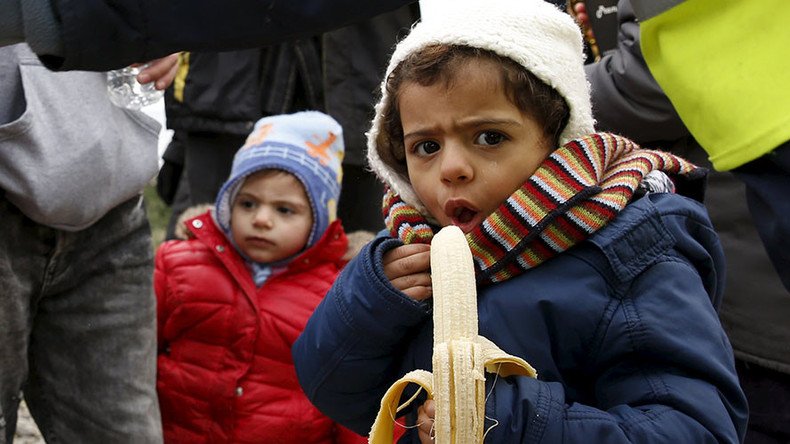Human traffickers are taking advantage of Europe’s refugee crisis to find sex and labor slaves, particularly children, Europol says. The EU police’s chief of staff told the Observer that some 10,000 minors have gone missing since crossing into the EU.
Thousands of underage refugees have reportedly disappeared since registering with authorities, Europol’s chief of staff, Brian Donald, told The Observer.
At least 5,000 children have gone missing in Italy alone, Donald said, adding that another 1,000 have vanished in Sweden.
Donald stressed that an EU-wide “criminal infrastructure” could be specially targeting refugee children.
“It’s not unreasonable to say that we’re looking at 10,000-plus children. Not all of them will be criminally exploited; some might have been passed on to family members. We just don’t know where they are, what they’re doing or whom they are with.”
Moreover, there is already evidence of sexual exploitation, especially in Germany and Hungary. “An entire [criminal] infrastructure has developed over the past 18 months around exploiting the migrant flow. There are prisons in Germany and Hungary where the vast majority of people arrested and placed there are in relation to criminal activity surrounding the migrant crisis,” said Donald.
Thickening the plot, Police have discovered that the illegal gangs helping refugees come to the EU are the same gangs involved with human-trafficking. “The ones who have been active in human smuggling are now appearing in our files in relation to migrant smuggling,” said Donald.
The fate of unaccompanied children refugees is becoming a major concern in the EU, as the number of missing minors swells.
UK charity Save the Children estimates that at least 26,000 lone refugee children entered Europe in 2015. It has recorded multiple cases of sexual abuse, violence, and extortion involving child refugees and is calling on the UK to resettle 3,000 of them as soon as possible.
“These children need and deserve our help and protection. Left to fend for themselves, lone children are extremely vulnerable along the refugee route. Children report having been beaten, extorted, and sexually abused on their journey,” Save the Children CEO Justin Forsyth said.
Meanwhile, Europol estimates that 27% of the refugees that arrived in Europe in 2015 were minors.
“Whether they are registered or not, we’re talking about 270,000 children. Not all of those are unaccompanied, but we also have evidence that a large proportion might be,” said Donald, signaling that his estimate of 10,000 missing child refugees is likely much too low.
Sweden alone received a total of 35,369 unaccompanied, underage refugees last year, according to the country’s migration agency, Migrationsverket.
The Observer reported in December that the number of children asylum seekers disappearing in the UK had doubled over the past year.
Experts have warned that unaccompanied children migrants are the most vulnerable group.
“Unaccompanied minors from regions of conflict are by far the most vulnerable population; those without parental care that have either been sent by their families to get into Europe first and then get the family over, or have fled with other family members,” The Guardian quoted Mariyana Berket from the Organisation for Security and Cooperation in Europe (OSCE) as saying.
Donald urges people to keep an eye out for missing refugee kids, since they could be subject to abuse in their communities. “These kids are in the community, if they’re being abused it’s in the community. They’re not being spirited away and held in the middle of forests, though I suspect some might be, they’re in the community – they’re visible. As a population we need to be alert to this.”
Earlier this week, British Prime Minister David Cameron refused to take in 3,000 unaccompanied refugee children scattered across Europe, claiming an open door policy would encourage more to make the perilous journey.
However, as a concession, the British government said it will accept more unaccompanied children from camps surrounding Syria. It said the children would be accepted on top of the 20,000 Britain has already pledged to take by 2020.
Britain’s International Development Committee (IDC) said in early January that it is particularly concerned about the plight of refugee children who have been left to fend for themselves in Europe.

